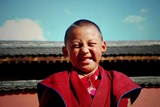一、选择题
If I ______ a bird, I ______ fly in the sky.
A. am; will
B. was; would
C. were; would
D. are; will
答案:C
解析:本题考查虚拟语气中与现在事实相反的情况。在 if 引导的非真实条件状语从句中,与现在事实相反时,从句谓语用过去式(be 通常用 were),主句谓语用 “should (would, could, might) + 动词原形”。“我是一只鸟” 与现在事实不符,所以从句用 were,主句用 would + 动词原形,故选 C。
If it ______ rain tomorrow, we ______ go to the park.
A. doesn't; will
B. rained; would
C. should; would
D. were; will
答案:C
解析:本题考查虚拟语气中与将来事实相反的情况。从句谓语可以用过去式(be 通常用 were)或 “should + 动词原形” 或 “were to + 动词原形”,主句谓语用 “should (would, could, might) + 动词原形”。这里 “如果明天下雨” 是对将来情况的虚拟假设,选项 C 符合虚拟语气与将来事实相反的用法,故选 C。
If he ______ more carefully, he ______ the mistake.
A. had listened; wouldn't have made
B. listened; wouldn't make
C. listens; won't make
D. will listen; won't make
答案:A
解析:本题考查虚拟语气中与过去事实相反的情况。从句谓语用过去完成时(had + 过去分词),主句谓语用 “should (would, could, might) + have + 过去分词”。“如果他更仔细些” 是对过去情况的假设,“犯错误” 也是过去的动作,所以从句用 had listened,主句用 wouldn't have made,故选 A。
If I ______ enough money, I ______ a new computer.
A. have; will buy
B. had; would buy
C. had had; would have bought
D. will have; buy
答案:B
解析:本题考查虚拟语气中与现在事实相反的情况。在 if 引导的非真实条件状语从句中,与现在事实相反时,从句谓语用过去式(be 通常用 were),主句谓语用 “should (would, could, might) + 动词原形”。“我有足够的钱” 与现在事实不符,所以从句用 had,主句用 would buy,故选 B。
If you ______ to the party last night, you ______ her.
A. went; would meet
B. had gone; would have met
C. go; will meet
D. were going; met
答案:B
解析:本题考查虚拟语气中与过去事实相反的情况。从句谓语用过去完成时(had + 过去分词),主句谓语用 “should (would, could, might) + have + 过去分词”。“如果你昨晚去了派对” 是对过去情况的假设,“见到她” 也是过去可能发生的动作,所以从句用 had gone,主句用 would have met,故选 B。
If it ______ sunny tomorrow, we ______ have a picnic. But the weather forecast says it's going to rain.
A. is; will
B. were; would
C. was; would
D. will be; will
答案:B
解析:本题考查虚拟语气中与将来事实相反的情况。从句谓语可以用过去式(be 通常用 were)或 “should + 动词原形” 或 “were to + 动词原形”,主句谓语用 “should (would, could, might) + 动词原形”。根据 “但是天气预报说要下雨” 可知,“明天天气晴朗” 是与将来事实相反的假设,所以从句用 were,主句用 would + 动词原形,故选 B。
二、填空题
If I ______ (be) the president, I ______ (make) education free for all.
答案:were; would make
解析:本题考查虚拟语气中与现在事实相反的情况。在 if 引导的非真实条件状语从句中,与现在事实相反时,从句谓语用过去式(be 通常用 were),主句谓语用 “should (would, could, might) + 动词原形”。“我是总统” 与现在事实不符,所以从句填 were,主句填 would make。
If he ______ (study) harder last term, he ______ (get) better grades.
答案:had studied; would have got
解析:本题考查虚拟语气中与过去事实相反的情况。从句谓语用过去完成时(had + 过去分词),主句谓语用 “should (would, could, might) + have + 过去分词”。“上学期他更努力学习” 是对过去情况的假设,所以从句填 had studied,“取得更好的成绩” 也是过去可能的结果,所以主句填 would have got。
If it ______ (snow) tomorrow, we ______ (build) a snowman.
答案:snowed 或 were to snow 或 should snow; would build
解析:本题考查虚拟语气中与将来事实相反的情况。从句谓语可以用过去式(be 通常用 were)或 “should + 动词原形” 或 “were to + 动词原形”,主句谓语用 “should (would, could, might) + 动词原形”。“明天下雪” 是对将来情况的假设,所以从句可以填 snowed 或 were to snow 或 should snow,主句填 would build。
If she ______ (have) more time, she ______ (read) more books.
答案:had; would read
解析:本题考查虚拟语气中与现在事实相反的情况。在 if 引导的非真实条件状语从句中,与现在事实相反时,从句谓语用过去式(be 通常用 were),主句谓语用 “should (would, could, might) + 动词原形”。“她有更多时间” 与现在事实不符,所以从句填 had,主句填 would read。
If we ______ (know) his address, we ______ (send) him a postcard.
答案:knew; would send
解析:本题考查虚拟语气中与现在事实相反的情况。在 if 引导的非真实条件状语从句中,与现在事实相反时,从句谓语用过去式(be 通常用 were),主句谓语用 “should (would, could, might) + 动词原形”。“我们知道他的地址” 与现在事实不符,所以从句填 knew,主句填 would send。
三、改错题
If I am you, I will study harder.
答案:If I were you, I would study harder.
解析:本题考查虚拟语气中与现在事实相反的情况。在 if 引导的非真实条件状语从句中,与现在事实相反时,从句谓语应该用过去式(be 通常用 were),主句谓语应该用 “should (would, could, might) + 动词原形”,原句中从句的 am 和主句的 will 使用错误。
If he had listened to me, he won't make the mistake.
答案:If he had listened to me, he wouldn't have made the mistake.
解析:本题考查虚拟语气中与过去事实相反的情况。从句谓语用过去完成时(had + 过去分词),主句谓语应该用 “should (would, could, might) + have + 过去分词”,原句中主句的 won't make 使用错误。
If it will rain tomorrow, we would stay at home.
答案:If it rained 或 were to rain 或 should rain tomorrow, we would stay at home.
解析:本题考查虚拟语气中与将来事实相反的情况。从句谓语应该用过去式(be 通常用 were)或 “should + 动词原形” 或 “were to + 动词原形”,原句中从句的 will rain 使用错误。
If I have enough money, I would buy a new car.
答案:If I had enough money, I would buy a new car.
解析:本题考查虚拟语气中与现在事实相反的情况。在 if 引导的非真实条件状语从句中,与现在事实相反时,从句谓语应该用过去式(be 通常用 were),原句中从句的 have 使用错误。
If you went to the concert last night, you will meet your favorite singer.
答案:If you had gone to the concert last night, you would have met your favorite singer.
解析:本题考查虚拟语气中与过去事实相反的情况。从句谓语应该用过去完成时(had + 过去分词),主句谓语应该用 “should (would, could, might) + have + 过去分词”,原句中从句的 went 和主句的 will meet 使用错误。
四、材料题
材料一:
Tom said, "If I had a million dollars, I would buy a big house for my parents. They have worked so hard and they deserve a comfortable place to live."
问题:
请分析这句话中虚拟语气的用法。
根据材料内容,说说 Tom 的愿望是什么?
答案:
这句话使用了虚拟语气中与现在事实相反的情况。在 if 引导的非真实条件状语从句中,从句 “If I had a million dollars” 谓语用了过去式 had,因为 “有一百万美元” 与现在事实不符;主句 “I would buy a big house for my parents” 谓语用了 “would + 动词原形”,这种结构符合虚拟语气在与现在事实相反的条件状语从句中的用法。
Tom 的愿望是有一百万美元,然后给父母买一所大房子,让他们能有一个舒适的居住地方,这体现了他对父母的孝心。
材料二:
Lily regretted not going to the party last night. She said, "If I had gone to the party, I would have met my old friends. I really missed that chance."
问题:
请分析这句话中虚拟语气的用法。
根据材料内容,说说 Lily 的心情是怎样的?
答案:
这句话使用了虚拟语气中与过去事实相反的情况。从句 “If I had gone to the party” 谓语用了过去完成时(had + 过去分词 gone),因为 “去派对” 是对过去情况的假设;主句 “I would have met my old friends” 谓语用了 “would + have + 过去分词”,这种结构符合虚拟语气在与过去事实相反的条件状语从句中的用法。
Lily 的心情是后悔的。她因为昨晚没去派对而错过了见到老朋友的机会,从她所说的话可以看出她对错过这个机会感到很遗憾。

